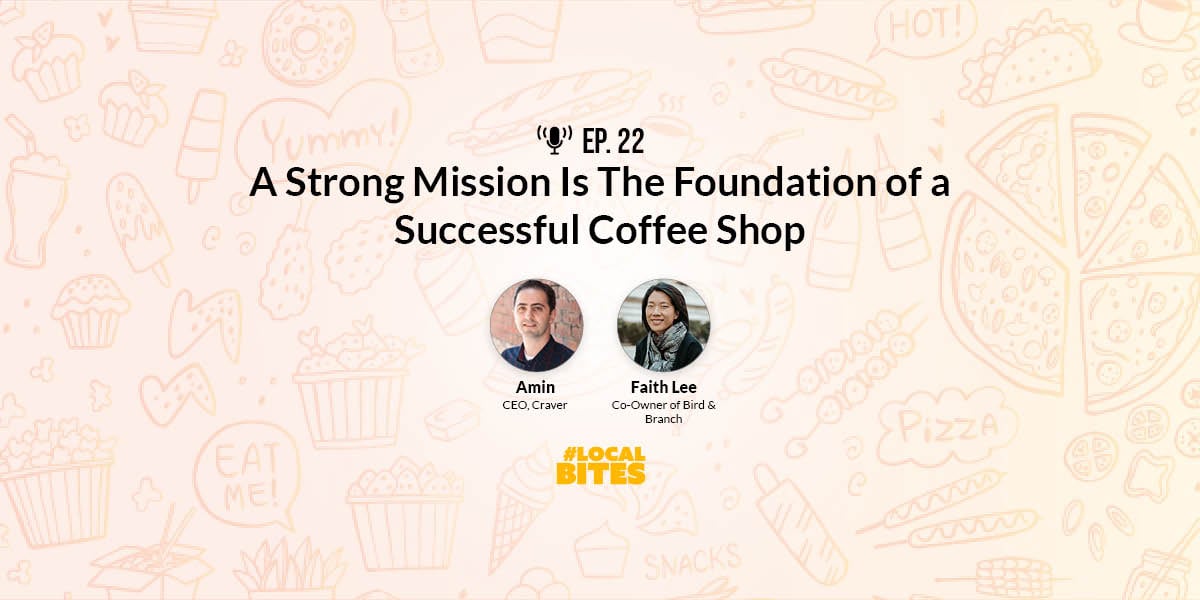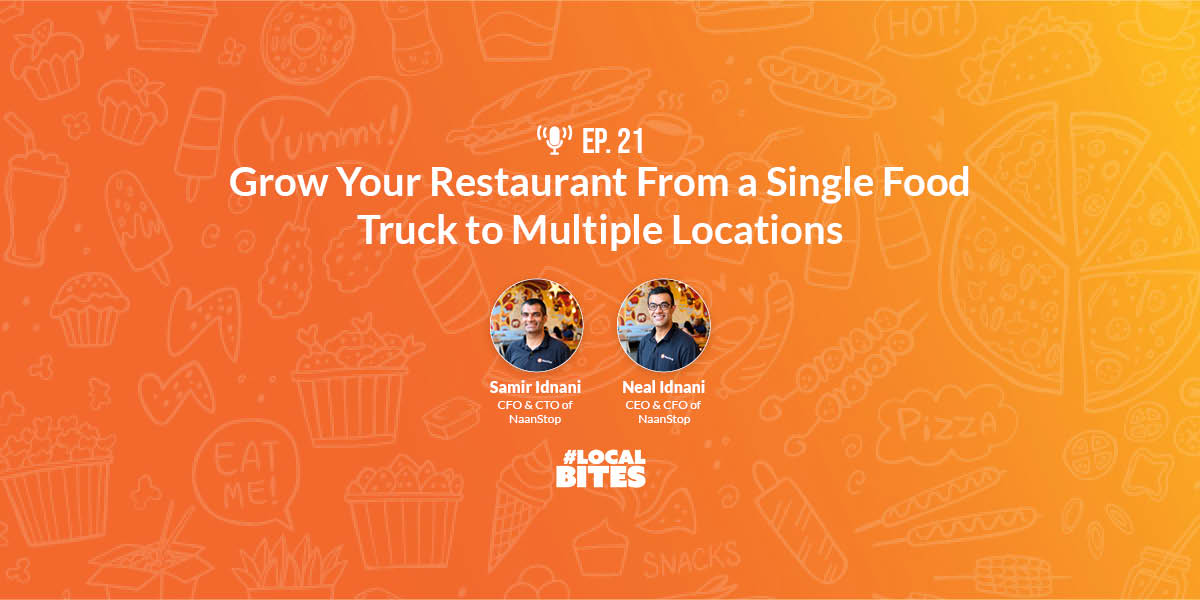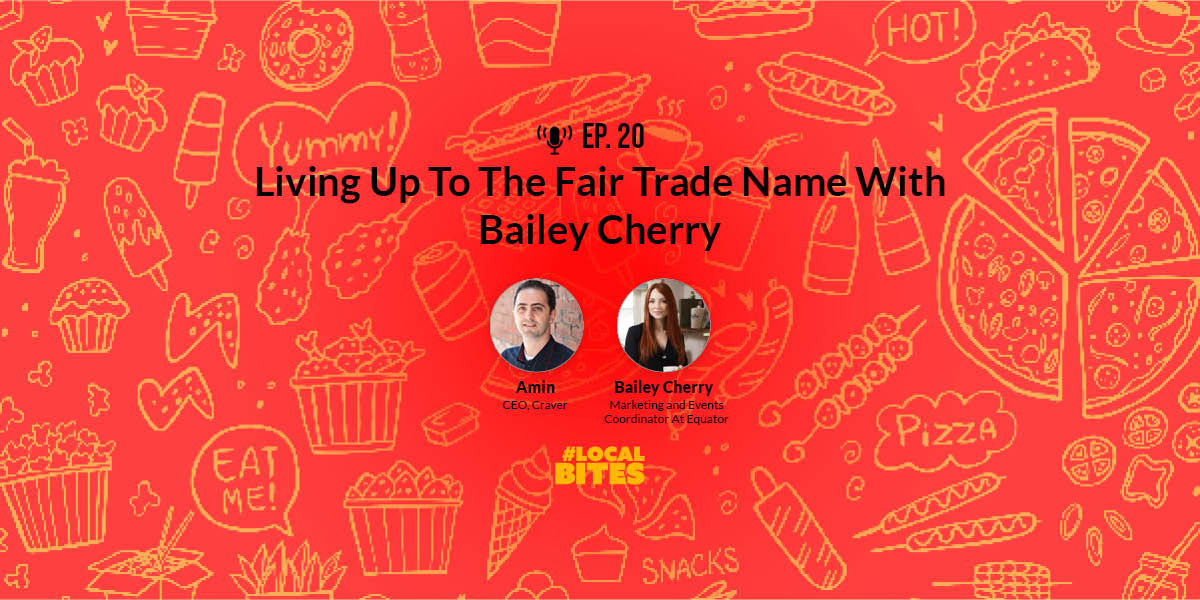You Have To Be Kind with Cynthia Lubin
This week I got the chance to talk food trucks with the owner of Earth N Zest, Cynthia Lubin. Cynthia walked away from her career to open a heath-focused food truck, and for her, that risk has really paid off.
Cynthia shared the ins and outs of choosing locations and organizing her menu for the food truck setup. We talked about regular customers, navigating food truck licenses, and of course, about the excitement of owning your own business.
Listen on your preferred podcast service:
|
Read Through The Transcript: Choosing Locations For Your Food Truck |
How Earth N Zest Came To Be
What’s the story behind Earth N Zest? Why a smoothie and juice truck?
So the backstory of it, it's extremely crazy. Um, this probably was 2019. I was in school for nursing actually and almost done. And I was actually working for a company where I actually just draw blood. Um, so my professional was a phlebotomist and I was in nursing school. But doing it for so long, I realized that I no longer have like a passion for it anymore.
And here comes—The pandemic ends up happening. Everybody is in the house and I end up quitting my job because I was an essential worker. I end up quitting my job and I realize that. This is not what I wanted to do. So in the midst of the pandemic, I decided to kind of start my own business and I try to figure out what exactly I'm passionate about. I'm very big into healthcare.
So I go to the gym at least four to five times a week. And I realized that I could transition my healthcare into health and wellness. And I tried to figure out what exactly I could like, kind of gravitate towards other people. And I came up with the smoothie business. Believe it or not, I actually bought my food truck, my smoothie truck—what I like to call it—from China in the middle of the pandemic.
Yeah, it's not like a typical regular food truck that you see here in like New York City. It actually looks like the little Scooby Doo truck. I'm like a big hipster, so it actually looks like, a Scooby Doo truck. It's green, it's white. I just trail around all over New York and this is how basically Earth N Zest actually came up.
I started doing the smoothies out of my house just to see if I would have clientele. And it actually really helped. I had a lot of like the hospitals requesting it. A lot of doctors' offices requesting. I guess that was like the benefit of being in healthcare at the time. I made a lot of connections with like doctors and nurses and stuff like that.
I started selling it out of my house.
What’s the timeframe of that?
So this was actually May of 2020.
I started doing that. I wanted to see if people would bite and all of my ingredients are fresh. There's no sugar. There's no added sugar into it, and I actually want to do like a little twist with it. I wanted to kind of add, now that it's legal, I wanted to add marijuana into it, but I still don't know how to actually really do that, so that's really more on the back burner.
It was May and I would post everything on social media and people would DM me or call me or text me and say, “Hey, I need like an order of this and I need an order of that.”
And I would go and deliver and people would come to my house and pick it up and they would promote it, on Instagram for me.
The smoothie truck actually arrived, so this was May. It actually arrived last summer.
Choosing Locations For Your Food Truck
How do you pick locations for your food truck?
So I actually got really lucky. Again, I'm very much into fitness and In the midst of the pandemic, everybody was into fitness, whether you were riding a bike or you had like a home gym and stuff like that. So when my local gym actually opened, which is Powerhouse, I actually asked the owner if I could post there from Monday through Friday, and he agreed and this is exactly how—I'm posted there throughout the week.
During the weekends I go into the city. I live in Rockland, so I live in the suburbs.
So on the weekends, how do you pick the spots? Do you rotate them?
So with New York, there's like zones that you have to actually be able to like set your business in. So I usually am like into the park. I have a lot of friends that own actually businesses as well, so sometimes I'll actually ask them if I can park in front of their storefronts.
So living in New York, living in New York City, there's like the hustle and bustle. Everything is very fast-paced, so there's always a client.
What changes did you have to make to serve the people coming to the food truck?
Well, for one, I think what separates me from other food trucks is my truck itself, it's very much different. So it brings in like the people that I need to bring in. So giving that—It's an attraction if, if that's the proper word, it's an attraction. So that brings in the clientele that is needed. And with my smoothies, again, there is no added sugar.
And I think with the pandemic, a lot of people realize that they really wanted to take their health a little bit more seriously. Given, you know, what was happening with covid-19. So now people are eating more vegetables, people are taking more of their vitamin Ds and basically, this is what my smoothies and my smoothie bowls, that's what provides, there's none of that artificial—like everything is fresh.
I go to the farmer's market every morning and I'm able to pick out the proper produce in order to make my smoothies.
One of the constraints of a food truck is space. How do you deal with that?
Yeah, so there are about two people, me and another person allowed to be in there. There's enough space for two people. When I did customize my truck, I customized it to my liking where there's a refrigerator, there's storage space. So we have enough space where everything can actually be fit into the truck with two people, you know, where we're not really necessary on top of each other.
How did you build relationships with businesses to get permission to park near their storefronts?
So with New York, I don't know about like other states, but with New York, they're not giving out regular food truck licenses anymore. What they're doing is they're giving out, what's called a residential food truck license. So you actually have to, now, you actually have to ask permission to other locations in order to actually park your food truck there.
Luckily for me, I have a very wide amount of friends that are creatives. So a lot of them own like apparel businesses, so that's not going to jeopardize their funding, you know? And I have a friend who owns an art gallery in New York, so that connection, that networking that I was doing way before getting into the business that I'm in now, it actually has paid off because these are my dear friends and I'm, not only am I bringing business to myself, but I'm also bringing business to them too.
With my gym, I guess because I'm a regular there, and when I brought the idea to them, I showed them the truck, I actually gave them testers of my drinks and they're like, “We love it. Sold. Perfect.”
Making The Most Of A Small Space
What did you do to go from making the smoothies in your home to in your truck to adjust to the fast-paced environment?
Well, so when I was actually doing it outta my house, I was doing it by myself. So I would wake up maybe like six o'clock in the morning, go to the store and. Prepping everything. You know, I didn't prep it the day before. I would prep it literally the day of. I would get the orders in and then I would just start delivering.
So everything was freshly made. That did take a lot of time on me because I'm literally a one-band man. So the fact that I have let's say a sous-sous chef—a helper. It definitely cuts the timing in half and I'm able to provide the best customer service possible.
Connecting With Customers
What technology do you use to communicate with your customers? Do you use any?
It's actually more like word of mouth. And word of mouth, even back then actually helped me get the clienteles that I needed. But now that I'm more posted up in a local space throughout the week, it actually helps me out a lot more. So I have like regular customers coming in. And then during the weekend like I said I'm in the city.
How do you create a relationship with your regulars?
My past life—working in the health field actually helped me transition into being a business owner because when you're in the medical field and you're kind of creating a connection with. Regular patients that come in and they come in to do their blood work.
I've had patients where they tell me almost their deepest, darkest situations that they're going through. I've had patients cry in my arms, so I think like I'm a very sympathetic person and I understand how to actually see a human being and it costs nothing to just be friendly.
And patient and kind. I think my patience working in the healthcare industry has helped me transition into being a good owner of a business, a small business right?
How do you get the right team member to help you serve customers how you want them to?
So I'm very much like a spiritualist. So I go off of how somebody's energy or how you would treat me. I could literally go to the store and if I could have a conversation with somebody, I'm feeling your energy in a type of way. So that actually tells that you're either a genuine person or you know, you're not.
So the person that I decided to take on as my employee, they are a very respectful person. And I think that's something that you have to have when you're working—when you have your own business. But when you're working in like customer service world, you have to have patience. You have to have respect, you know?
You have to be kind and that's what it's really all about,
The Business Side of Things
Have you had any issues with hiring?
Well, when I first started it was my siblings that were helping me. And on top of that, when I was coming up with a lot of like my ingredients they were my testers, so they would drink my drinks and they would give me the honest truth: “Hey, you need a little bit more of this,” or “you need a little bit less of this.”
So because of them, they were able to—I was able to modify exactly what I was putting out.
How did you learn the business side of things?
Honestly, I'm still very much learning. This is my first time owning a business, a functioning, or running a business, and I just, honestly, what us young people like to say we YouTube school. Everything is free on YouTube. I kind of watched how other people ended up doing it.
I took the proper steps and I bought the proper equipment. I'm very particular about how I run things in general, in life in general. Maybe it's an OCD thing, but, I'm very precise on what I wanna do. I'm a Tauris at heart, so I'm very stubborn, and I like things done a certain way, so I'm never going to put anything out that I am not happy with.
So, For me, it was just like, okay, I, I dropped out of nursing school, I quit my job, my nine to five. There is no more plan B, C, D, going on. This is it, and I only have one shot at doing it correctly. So YouTube School and Google.
Any particular channel?
It was just that particular topic. I'm very much into health and wellness. I go to the gym, so even for me, prior to like starting this business, I was making protein shakes and I was making smoothies and I was making smoothie bowls.
I'm not always accurate on my particular diet, but other people take it seriously. They're very strict. They're very strict with their diet. Like they do the, they wake up, they do the protein shakes, they do the breakfast. They'll do the lunch with fibres and stuff like that. So why not? Why not start that?
How did you put together your recipes?
A lot of tests and trials. I came up with a lot of different ingredients. I, again had a tasting party when I first launched it in my house. They really gave me the honest truth. Surprisingly, it wasn't very harsh. It was like, “Okay, this is really good.” “This is my favorite drink.” “I don't really like this one.” So their honest truth is actually what really helped me.
What advice do you have for people that want to open their own food truck?
My piece of advice is one, do a lot of research. Cause again, I'm still learning. I'm new to the game, so every day is a new discovery for me. But also just don't give up on your dreams. It's very discouraging. You know, there were days that I was like crying and I wanted to give up on doing it because I didn't use funding like financial like a bank to help me or anything like that.
This was all of like my own savings. I invested about $50,000 into it. It was very discouraging to me cuz it's just like, this is all that I have I worked really hard for this money and I am really pouring everything that I have into it, which is why, again, there is no other plan for me. You know?
Just don't give up on, what you have in mind for yourself.
Amin Yazdani is the CEO and Co-Founder of Craver, a fast-growing mobile platform for restaurants, helping them grow and retain a loyal customer base.






